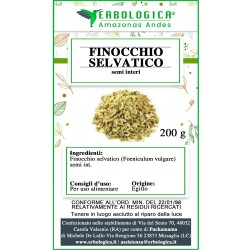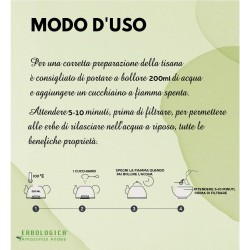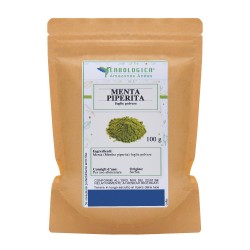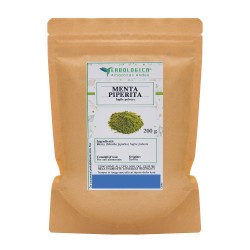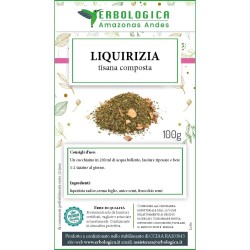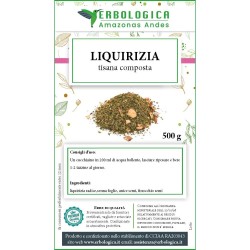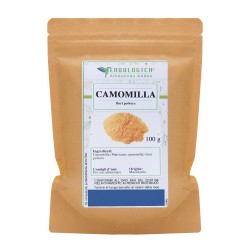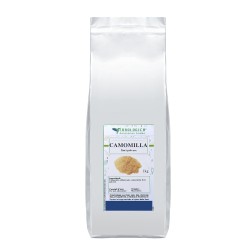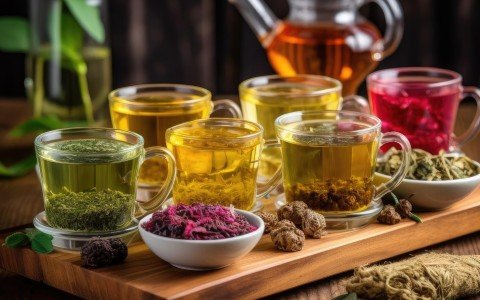
Erbe e tisane che favoriscono una corretta digestione
Benvenuti alla guida completa sulle erbe e le tisane digestive che favoriscono una corretta digestione!
Sapevate che molte erbe hanno proprietà benefiche per il sistema digestivo?
Questa guida vi aiuterà a scoprire le erbe e le tisane più efficaci per migliorare naturalmente il processo digestivo.
L'uso di erbe medicinali per favorire la digestione è una pratica antica utilizzata da molte culture in tutto il mondo.
Queste erbe possono aiutare a ridurre l'infiammazione, calmare lo stomaco, migliorare la motilità intestinale e alleviare disturbi digestivi comuni come gonfiore, indigestione e acidità.
Le erbe più popolari per la digestione includono la menta piperita, la camomilla, il finocchio e il liquirizia.
Ognuna di queste erbe ha proprietà uniche che possono aiutare a migliorare il funzionamento del sistema digestivo e alleviare eventuali disturbi.
Preparare una tisana con queste erbe è un modo semplice ed efficace per beneficiare delle loro proprietà digestive.
È possibile trovarle già confezionate in commercio o coltivarle personalmente per godere di un prodotto fresco e di qualità.
Siete pronti per scoprire quali erbe e tisane possono migliorare la vostra digestione in modo naturale?
Continuate a leggere la nostra guida completa!
Importanza di una corretta digestione
Una corretta digestione è essenziale per il benessere generale del nostro corpo.
Un sistema digestivo sano ci permette di assorbire i nutrienti necessari per il nostro corpo, mantenere un peso sano e prevenire disturbi digestivi comuni.
Quando il sistema digestivo non funziona correttamente, possono verificarsi problemi come gonfiore, indigestione, acidità, stipsi e diarrea.
Questi disturbi possono essere fastidiosi e influenzare negativamente la nostra qualità di vita.
Le erbe e le tisane digestive possono aiutare a migliorare la digestione in diversi modi.
Alcune erbe hanno proprietà carminative, che aiutano ad alleviare il gas e il gonfiore.
Altre erbe hanno proprietà antinfiammatorie che possono ridurre l'infiammazione del tratto digestivo.
Alcune erbe possono anche stimolare la motilità intestinale, favorendo un transito intestinale regolare.
Problemi digestivi comuni e come le erbe possono aiutarci
I problemi digestivi comuni come il gonfiore, l'indigestione e l'acidità possono essere molto fastidiosi e influenzare il nostro benessere quotidiano.
Fortunatamente, molte erbe e tisane possono fornire un sollievo naturale da questi disturbi.
Il gonfiore, ad esempio, può essere causato dall'accumulo di gas nell'intestino.
Alcune erbe come il finocchio e la menta piperita hanno proprietà carminative che aiutano ad alleviare il gas e il gonfiore.
Preparare una tisana con queste erbe può aiutare a ridurre il gonfiore e migliorare il comfort digestivo.
L'indigestione è un altro disturbo comune che può causare bruciore di stomaco, eruttazione e sensazione di pesantezza dopo i pasti.
La camomilla è un'erbacea nota per le sue proprietà antinfiammatorie e sedative, che possono aiutare ad alleviare l'indigestione e calmare lo stomaco.
Preparare una tisana di camomilla può essere un rimedio naturale per l'indigestione.
L'acidità, o reflusso acido, è un disturbo in cui l'acido dello stomaco risale nell'esofago, causando bruciore e disagio.
L'estratto di liquirizia è noto per le sue proprietà protettive per la mucosa dello stomaco e può aiutare ad alleviare l'acidità.
Preparare una tisana di liquirizia può essere un modo naturale per ridurre l'acidità e promuovere una corretta digestione.
Erbe per favorire la digestione
Esistono molte erbe che possono favorire la digestione e migliorare il funzionamento del sistema digestivo.
Ecco alcune delle erbe più efficaci per una corretta digestione:
Menta piperita: la menta piperita è nota per le sue proprietà carminative e antispasmodiche.
Può aiutare ad alleviare il gas, il gonfiore e i crampi intestinali.
Preparare una tisana di menta piperita può essere un modo naturale per favorire la digestione.
Camomilla: la camomilla ha proprietà antinfiammatorie e sedative che possono aiutare ad alleviare l'indigestione, il bruciore di stomaco e la sensazione di pesantezza dopo i pasti.
Può essere un rimedio dolce per favorire una corretta digestione.
Finocchio: il finocchio ha proprietà carminative e antispasmodiche che possono aiutare ad alleviare il gas, il gonfiore e i crampi intestinali.
Preparare una tisana di finocchio può essere un modo efficace per favorire la digestione e ridurre il disagio.
Liquirizia: l'estratto di liquirizia ha proprietà protettive per la mucosa dello stomaco e può aiutare ad alleviare l'acidità e il bruciore di stomaco.
Può essere un modo naturale per favorire una corretta digestione e ridurre l'acidità.
Queste sono solo alcune delle erbe più comuni utilizzate per favorire la digestione.
È possibile utilizzare singolarmente o combinare diverse erbe per ottenere un effetto sinergico.
Come preparare tisane digestive
Preparare una tisana digestiva è un processo semplice che richiede pochi ingredienti e strumenti.
Ecco come preparare una tisana digestiva:
Scegliere le erbe: selezionare le erbe che si desidera utilizzare per la tisana.
È possibile utilizzare erbe fresche o secche, a seconda della disponibilità e delle preferenze personali.
Misurare le erbe: misurare la quantità di erbe necessaria per la tisana.
Le dosi possono variare a seconda delle erbe utilizzate e del gusto personale.
Riscaldare l'acqua: portare l'acqua a ebollizione in una pentola o un bollitore.
Assicurarsi di utilizzare acqua pulita e di buona qualità.
Aggiungere le erbe: una volta che l'acqua ha raggiunto il punto di ebollizione, aggiungere le erbe nella pentola o nella tazza.
Coprire e lasciare in infusione per alcuni minuti, a seconda delle erbe utilizzate.
Filtrare e servire: dopo il tempo di infusione, filtrare la tisana per rimuovere le erbe.
Servire caldo o freddo, a seconda delle preferenze personali.
È possibile dolcificare la tisana con un cucchiaino di miele o di zucchero, se si desidera un gusto più dolce.
Tisane digestive per problemi digestivi specifici
Oltre alle erbe generalmente utilizzate per favorire la digestione, esistono tisane specifiche per problemi digestivi comuni come il gonfiore, l'indigestione, la stitichezza e altro ancora.
Ecco alcune tisane digestive per problemi specifici:
Tisana di menta piperita per il gonfiore: la menta piperita ha proprietà carminative che aiutano ad alleviare il gas e il gonfiore.
Aiuta a ridurre il gonfiore e migliorare il comfort digestivo.
Tisana di camomilla per l'indigestione: la camomilla ha proprietà antinfiammatorie e sedative che possono aiutare ad alleviare l'indigestione, il bruciore di stomaco e la sensazione di pesantezza dopo i pasti.
Un rimedio dolce per favorire una corretta digestione.
Tisana di finocchio per la stitichezza: il finocchio ha proprietà carminative e antispasmodiche che possono aiutare ad alleviare il gas, il gonfiore e i crampi intestinali.
Un modo efficace per favorire la digestione e ridurre la stitichezza.
Tisana di liquirizia per l'acidità: l'estratto di liquirizia ha proprietà protettive per la mucosa dello stomaco e può aiutare ad alleviare l'acidità e il bruciore di stomaco.
Un modo naturale per favorire una corretta digestione e ridurre l'acidità.
Queste sono solo alcune delle tisane digestive specifiche per problemi digestivi comuni.
È possibile sperimentare con diverse combinazioni di erbe per trovare quella più adatta alle proprie esigenze.
Erbe e tisane nella vita di tutti i giorni
Ecco alcuni modi per incorporare le erbe e le tisane nella vostra routine quotidiana:
Preparare una tisana al mattino: iniziare la giornata con una tisana digestiva può favorire una corretta digestione per tutto il giorno.
Scegliere le erbe che meglio si adattano alle proprie esigenze e preparare una tisana al mattino per godere dei benefici digestivi.
Sostituire le bevande zuccherate: invece di bere bevande zuccherate o gassate, optare per tisane digestive.
Le tisane possono essere un'alternativa sana e naturale alle bevande zuccherate, fornendo anche benefici per la digestione.
Consumare erbe fresche: se possibile, coltivare le proprie erbe fresche per godere di un prodotto di alta qualità.
Le erbe fresche possono essere utilizzate per preparare tisane o aggiunte a piatti salati per benefici digestivi.
Fare una pausa con una tisana: durante la giornata, prendersi una pausa per gustare una tisana digestiva può essere un modo per rilassarsi e favorire la digestione.
Scegliere una tisana che si preferisce e godersi un momento di relax.
Dosaggio corretto: utilizzare sempre le dosi raccomandate per le erbe e seguire le istruzioni sulla preparazione delle tisane.
Un uso eccessivo di erbe può causare effetti indesiderati.
Prendersi cura della propria salute e del proprio benessere richiede consapevolezza e attenzione.
Utilizzare le erbe e le tisane per favorire la digestione in modo sicuro ed efficace richiede una conoscenza adeguata e la consulenza di un esperto.
Dove acquistare erbe e tisane
Le erbe e le tisane digestive possono essere facilmente acquistate in negozi di prodotti naturali, erboristerie o anche online.
È possibile trovare una vasta gamma di erbe e tisane di alta qualità per favorire la digestione e migliorare il benessere generale.
Quando si acquistano erbe e tisane, è consigliabile scegliere prodotti di alta qualità provenienti da fonti affidabili.
Leggere attentamente le etichette per assicurarsi che le erbe siano pure e prive di additivi o sostanze indesiderate.
Se si desidera coltivare le proprie erbe, è possibile acquistare semi o piantine da vivai specializzati o negozi di giardinaggio.
Coltivare le proprie erbe può essere un modo gratificante per godere di un prodotto fresco e di alta qualità.
Conclusioni e ultimi consigli per favorire una corretta digestione
La corretta digestione è essenziale per il benessere generale del nostro corpo.
Utilizzare erbe e tisane digestive può essere un modo naturale per migliorare la digestione e prevenire disturbi comuni come gonfiore, indigestione e acidità.
Nella nostra guida, abbiamo esaminato le erbe più efficaci per favorire la digestione, come preparare tisane digestive, tisane specifiche per problemi digestivi comuni,
come incorporare le erbe e le tisane nella routine quotidiana, precauzioni e potenziali effetti collaterali, e dove acquistare erbe e tisane di alta qualità.
Ricordate sempre di consultare un esperto o un erborista prima di utilizzare erbe o tisane per la digestione, specialmente se si soffre di disturbi digestivi gravi o si assumono farmaci.
Ogni persona è diversa e può reagire in modo diverso alle erbe, quindi è importante prestare attenzione ai segnali del proprio corpo e adattare le erbe e le tisane alle proprie esigenze specifiche.
Incorporare le erbe e le tisane nella vostra routine quotidiana può essere un modo per favorire la digestione e migliorare il benessere generale.
Sperimentate con diverse erbe e tisane per trovare quelle più adatte alle vostre esigenze e godetevi i benefici di una corretta digestione in modo naturale.


